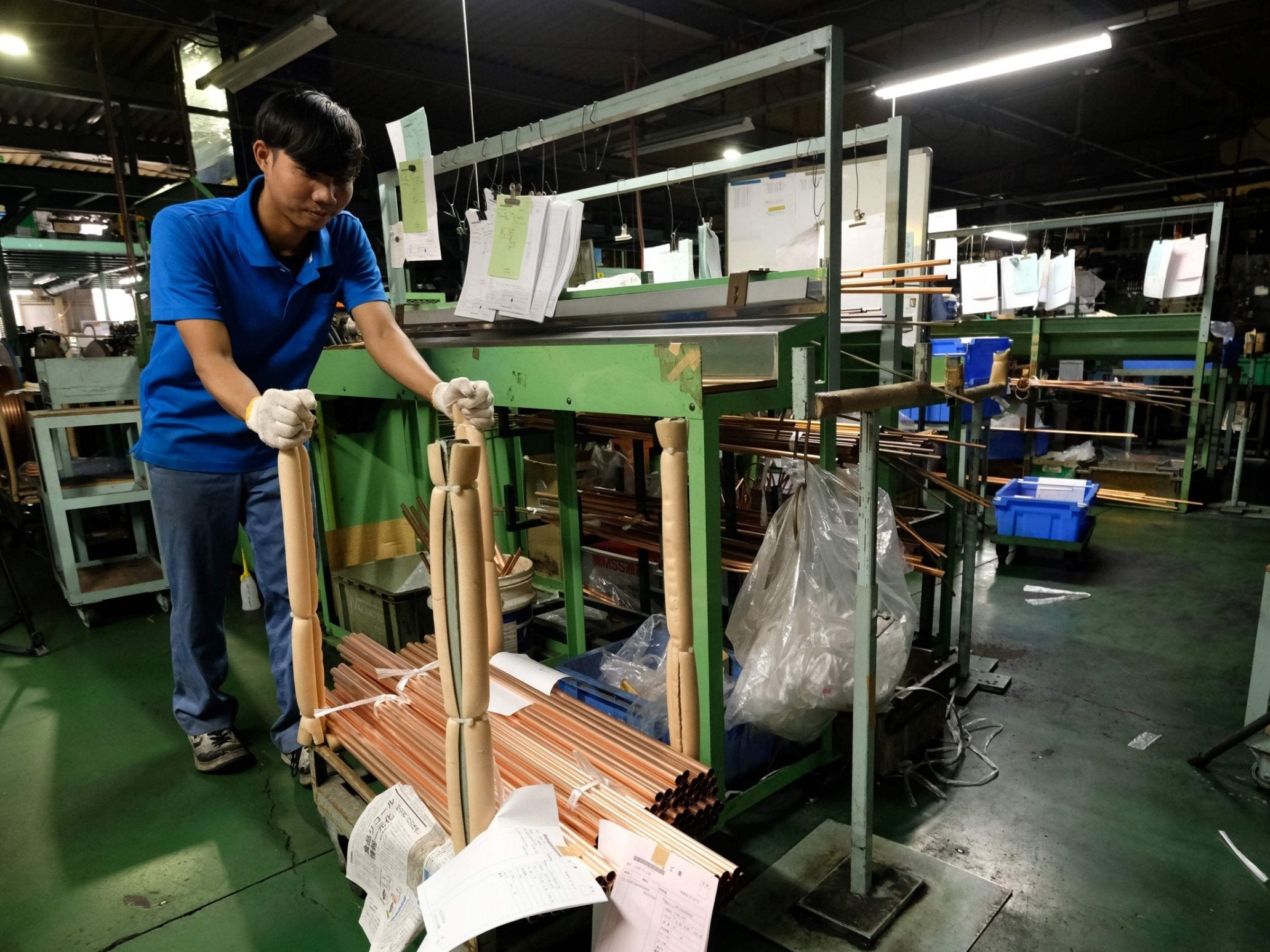Japan votes to advance unprecedented bill accepting more migrant workers
Opposition denounces measure as ‘half-baked’

Revolutionary plans to open up Japan’s labour market to foreign workers neared fruition this week as the government’s immigration reform bill was approved by the lower house of parliament.
Members of the national Diet’s upper chamber began debating the proposed law on Wednesday, Japanese media reported. If it is passed, tens of thousands of workers from outside Japan will be drafted into industries hit by staffing shortages – particularly nursing.
Under the scheme, the Nikkei Asian Review reported, low-skilled workers would be given visas for the first time providing they had sufficient ability in Japanese to get by.
The country’s population is ageing and the proportion of people of working age peaked more than two decades ago.
The new law would create a two-tier visa system to bolster 14 sectors of the economy: a five-year permit for unskilled workers; and a renewable one for workers with a higher skill level, who would also be allowed to bring their families, the Review reported.
Those sectors include electronics, food production and construction, according to reports, with nursing care expected to see the biggest influx of foreign labour.
Opposition parties have denounced the new measures as “half-baked”, The Mainichi reported, and criticised justice minister Takashi Yamashita for failing to explain them sufficiently to members of the lower house.
Two amendments were made, however, at the behest of conservative opposition party Nippon Ishin, the paper said – a planned review three years after implementation would now take place after two years, and a phrase about taking “necessary measures” to avoid a concentration of foreign workers in cities were added.
Nippon Ishin voted in favour of the revised bill, The Mainichi reported.
If approved by the upper house, the immigration control bill will come into force next April. Shinzo Abe’s government holds a majority in the chamber, and hopes to pass the measure before the current Diet session ends on 10 December.
It follows years of scandal surrounding Japan’s technical intern scheme, introduced in 1993, in which foreign workers from developing countries were able to gain new skills in Japan and take them home at the end of their five-year stay.

Mr Yamashita admitted earlier this month that there had been “cases of violation of labour-related laws and regulations, such as nonpayment of wages to interns and paying them lower than the minimum wage, as well as the disappearance of interns”, The Japan Times reported.
Employers are said to have abused the system as a source of cheap labour. Two-thirds of such interns who left their jobs had done so to find better pay, Japanese government figures reportedly showed.
Join our commenting forum
Join thought-provoking conversations, follow other Independent readers and see their replies
Comments
Bookmark popover
Removed from bookmarks